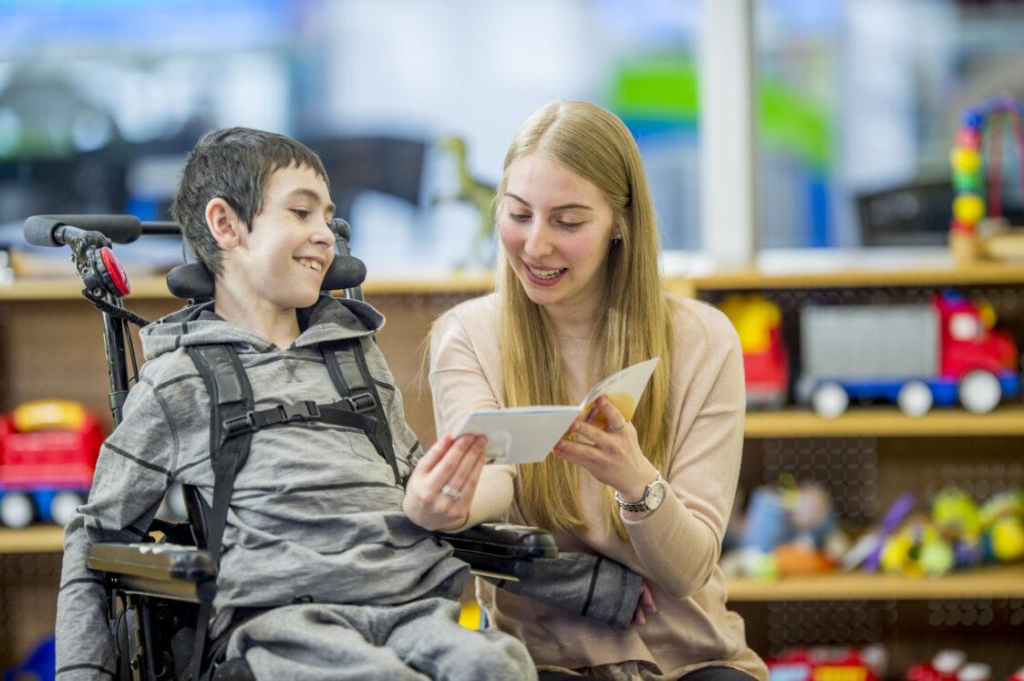
Parental involvement is a cornerstone of supporting individuals with disabilities, significantly influencing their overall well-being, development, and success. When it comes to navigating the challenges and opportunities that accompany disabilities, the role of parents cannot be overstated. In this comprehensive article, we delve into the multifaceted impact of parental involvement on disability outcomes, highlighting its importance in fostering empowerment, resilience, and holistic growth for individuals with disabilities.
Understanding Disability and the Importance of Support
Disability encompasses a broad spectrum of physical, cognitive, sensory, and developmental impairments that may impact an individual’s ability to participate fully in various aspects of life. Whether congenital or acquired, disabilities present unique challenges that require comprehensive support systems to address. From accessing education and healthcare to participating in social activities and employment, individuals with disabilities often face barriers that can hinder their inclusion and participation in society.
In this context, parental involvement plays a pivotal role in shaping the experiences and outcomes of individuals with disabilities. Parents serve as advocates, caregivers, educators, and emotional support systems, playing a vital role in empowering their children to navigate the complexities of living with a disability.
Empowering Advocacy and Support
One of the primary roles of parents in supporting individuals with disabilities is advocating for their rights, needs, and access to essential services. From securing appropriate educational accommodations to accessing healthcare services and community resources, parents often serve as fierce advocates, ensuring that their children receive the support and accommodations necessary to thrive.
Advocacy efforts may involve navigating bureaucratic systems, collaborating with educators and healthcare professionals, and advocating for policy changes to promote greater inclusivity and accessibility. By actively engaging in advocacy efforts, parents not only ensure that their children’s needs are met but also contribute to broader efforts to create more inclusive and equitable societies for individuals with disabilities.
Facilitating Holistic Development and Growth
Beyond advocacy, parental involvement plays a crucial role in facilitating the holistic development and growth of individuals with disabilities. Parents provide essential support in areas such as education, socialization, life skills development, and emotional well-being, laying the foundation for their children to achieve their full potential.
In the realm of education, parents collaborate with teachers and school administrators to develop individualized education plans (IEPs) and ensure that their children receive the necessary accommodations and support services. Additionally, parents play a vital role in fostering independence, resilience, and self-advocacy skills, empowering their children to navigate challenges and pursue their goals with confidence.
Building Resilience and Coping Mechanisms
Living with a disability often entails facing unique challenges, including societal stigma, accessibility barriers, and physical or cognitive limitations. In such circumstances, parental involvement is instrumental in nurturing resilience and fostering effective coping mechanisms.
Parents provide emotional support, encouragement, and reassurance, helping their children develop the resilience and coping skills needed to overcome adversity and thrive in the face of challenges. By cultivating a supportive and nurturing environment, parents empower their children to embrace their strengths, advocate for themselves, and pursue their aspirations with determination and resilience.
Promoting Social Inclusion and Community Engagement
Social inclusion is vital for the well-being and quality of life of individuals with disabilities, providing opportunities for social interaction, peer support, and community engagement. Parents play a crucial role in promoting social inclusion by facilitating opportunities for their children to participate in social activities, develop meaningful relationships, and contribute to their communities.
Whether through organized recreational activities, community events, or peer support groups, parents create opportunities for their children to connect with others, develop social skills, and foster a sense of belonging. By actively supporting their children’s social integration and participation, parents help combat isolation, promote self-esteem, and enhance overall well-being.
Conclusion
Parental involvement is a linchpin in supporting individuals with disabilities and promoting positive outcomes across various domains of life. From advocacy and support to empowerment and resilience-building, parents play a multifaceted role in nurturing the growth, development, and well-being of their children with disabilities.
By actively engaging in advocacy efforts, facilitating holistic development, nurturing resilience, and promoting social inclusion, parents empower their children to navigate the challenges of living with a disability and pursue a fulfilling and meaningful life. As we strive to create more inclusive and equitable societies, recognizing and valuing the critical role of parental involvement in disability outcomes is essential for promoting the rights, dignity, and well-being of individuals with disabilities.

